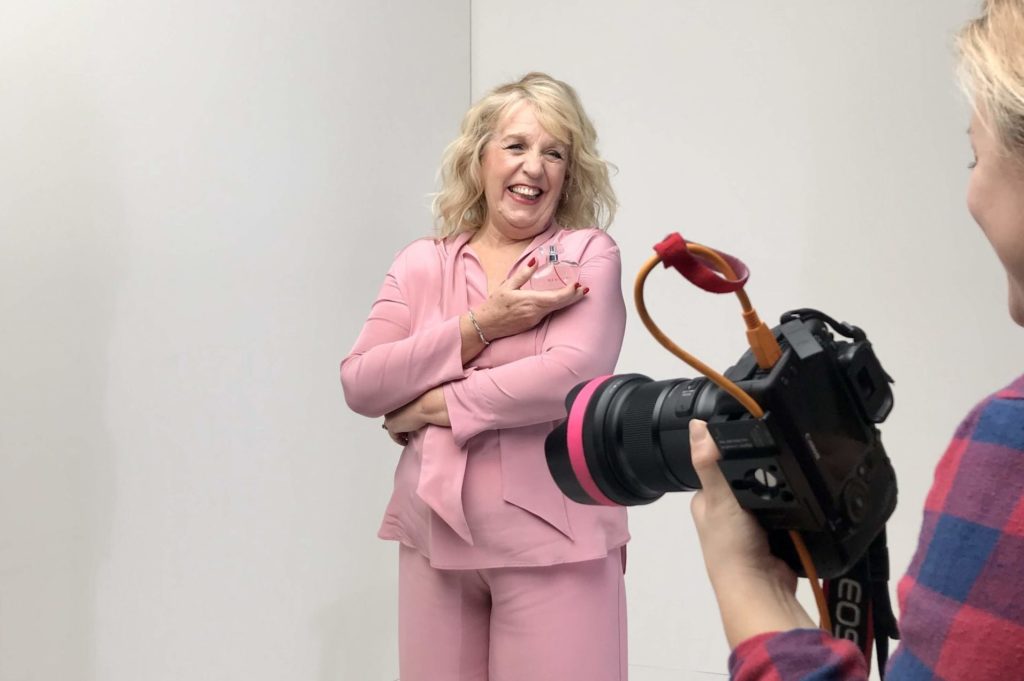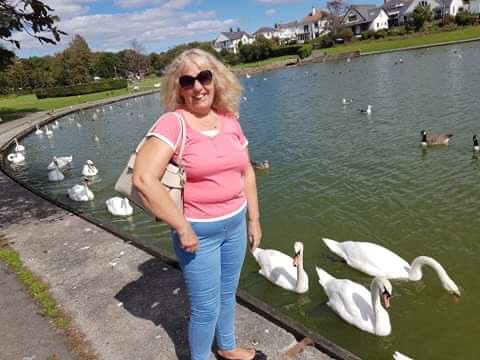I am a 62-year-old retired teacher, living in the North East, while being lucky enough to also spend my summers in Cornwall. I consider myself to have a positive outlook on life and aim to enjoy it to the full, always attempting to make optimum use of my good health and leisure time.
I have four grown children and three grandchildren, so I am kept busy spending time with them all, as they live in various parts of the UK. I also love to travel, so spend as much time as possible visiting other countries and experiencing as many different cultures as possible.
Throughout my life, I have encouraged everyone, particularly children, to ask questions about my birthmark.
I was born with a port wine stain birthmark on the left side of my neck, which slightly encroaches onto the lower side of my face. I have never allowed this to bother me in any way and have in fact always attempted to view it more as a positive attribute, which is as much a characteristic of who I am, as is my eye colour or hair type.
As a child, my parents always made me feel that my birthmark was part of who I was and I never remember feeling ostracised or made to feel different in any way. My siblings would occasionally tease me with comments about it but I never experienced bullying from them or any other peers.
Throughout my life, I have encouraged everyone, particularly children, to ask questions about my birthmark and believe that being open and honest about it has helped me to become extremely confident in my own skin.

Paulette at the Avon campaign shoot (Photo credit: Avon UK)
When children I taught asked about my birthmark, I would always answer them by explaining what it was and encouraging them to ask questions. This frank, candid dialogue often led to them realising that they too had birthmarks and scars, which they were then more willing to openly talk about.
I do believe it’s vital to educate and inform children about differences of any sort, to enable them to become as accepting as possible, of others who might look different from themselves.
More recently, I had breast cancer which resulted in me undergoing a mastectomy, which gives me the choice to wear a prosthesis. This can also be perceived as a visible difference which I am slowly coming to terms with. It also means that I have lived experience of both a congenital visible difference and one that I gained later in life.
These experiences have allowed me to fully empathise with people who are living with both of these types of visible differences.
My vision, is for a world where we can see past visible differences and instead focus on what unites us – our common bond of humanity.
I endeavour to always embrace the opportunity to help anyone else who may perhaps struggle with life, whilst living with any type of visible difference. It was this profound desire to help others in similar situations to me that motivated me to become a campaigner for Changing Faces. My role gives me the opportunity to meet people from all walks of life and offer support, guidance, or advice to those who require it.
I particularly enjoyed the recent opportunity to collaborate with Avon, as part of their corporate partnership with Changing Faces. This allowed me to tell my story as someone living with a visible difference and hopefully to inspire others to feel able to be confident in their own bodies.
It gave me a platform to voice my passion about the importance of believing in who we are and always remembering to celebrate our differences, for making us unique individuals and personalities.
My vision, is for a world where we can see past visible differences and instead focus on what unites us – our common bond of humanity, drawn together by kindness and an effort to understand what makes us unique individuals with our own special stories to tell.
